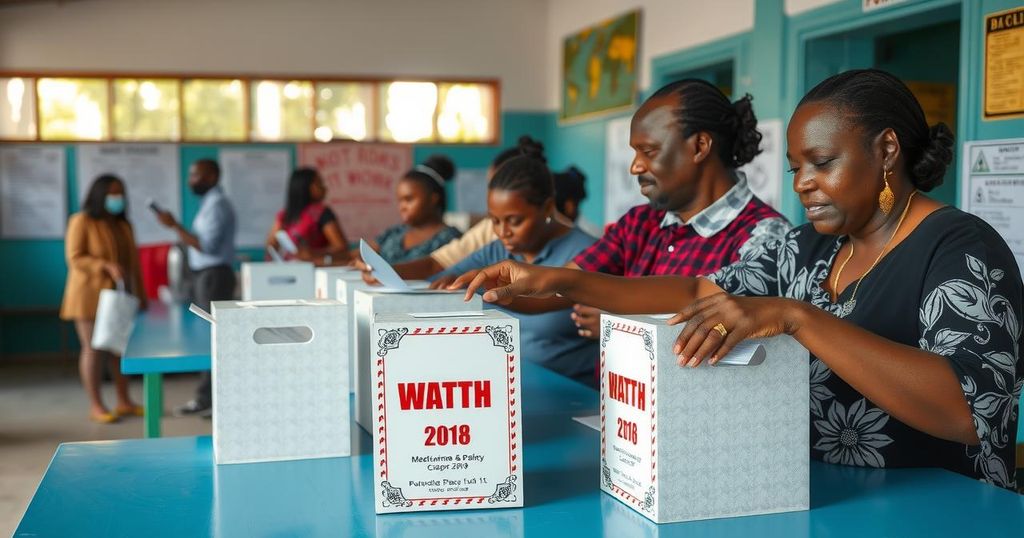Comoros voters are electing members for a 33-seat parliament, a year after President Azali Assoumani’s controversial re-election. Approximately 338,000 voters are registered to participate, and nearly 100 candidates are in the race. Accusations of authoritarianism against Assoumani persist, with some opposition parties urging a boycott. Results are expected by Friday, shaping the future political landscape of the nation.
Voters in Comoros are participating in parliamentary elections, with the objective of filling the 33-seat legislature in the Indian Ocean archipelago. This electoral exercise occurs a year following the re-election of President Azali Assoumani, whose victory came under scrutiny due to allegations of widespread electoral irregularities, claims that officials from his ruling party have refuted. Approximately 338,000 individuals are registered to vote, and polling stations commenced operations early on Sunday.
The last parliamentary elections in Comoros took place in January 2020, and nearly 100 candidates have been selected by the country’s Supreme Court to contest in this election. Assoumani faces opposition from critics who accuse him of exhibiting authoritarian tendencies and speculate that he is grooming his eldest son, Nour El-Fath, to succeed him after his term concludes in 2029.
Since rising to power through a coup in 1999, Assoumani has maintained his leadership through three subsequent elections. Notably, he bestowed significant new powers upon his son in 2024, tasking him with overseeing all governmental affairs. Some opposition factions, especially the Juwa party led by former President Ahmed Abdallah Sambi—currently imprisoned for life—have advocated for a boycott of these elections, while other groups have chosen to participate. Opposition candidate Hamidou Karihila from the Hope of the Comoros party articulated, “The Azali regime is weakened … by participating in these elections we are contributing to further exposing the flaws in its system and accelerating its inevitable fall.”
Results from the elections are anticipated by Friday, shaping the political landscape of Comoros amid ongoing tensions regarding governance and power dynamics.
The Comoros archipelago, situated in the Indian Ocean, has been characterized by political instability and power struggles since gaining independence in the 1970s. The nation has experienced a series of coups and changes in leadership, with Azali Assoumani’s current presidency marking one of the more stable periods, albeit under allegations of authoritarian rule. The political climate is intensified by ongoing concerns regarding electoral integrity and the succession plan perceived by the opposition, particularly regarding Assoumani’s son.
The parliamentary elections in Comoros symbolize a critical moment for the nation’s political landscape, reflecting ongoing tensions between the ruling party and opposition groups. Allegations of electoral malpractice, combined with fears of emerging dynastic politics under President Assoumani, underscore the urgency for transparent governance. As the election results loom on the horizon, the political future of Comoros remains uncertain, hinging on the outcomes of this pivotal electoral process.
Original Source: www.muswellbrookchronicle.com.au






